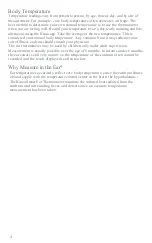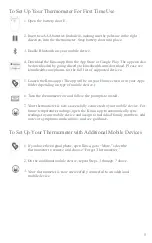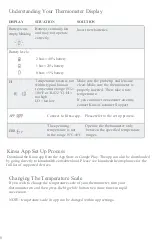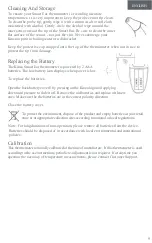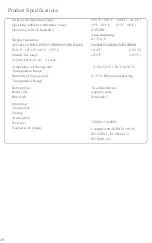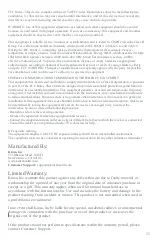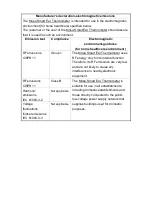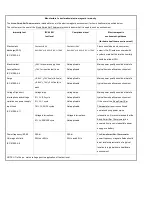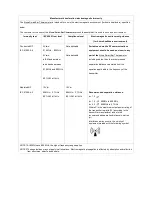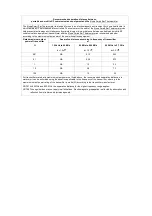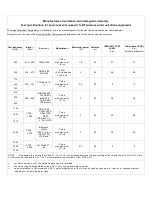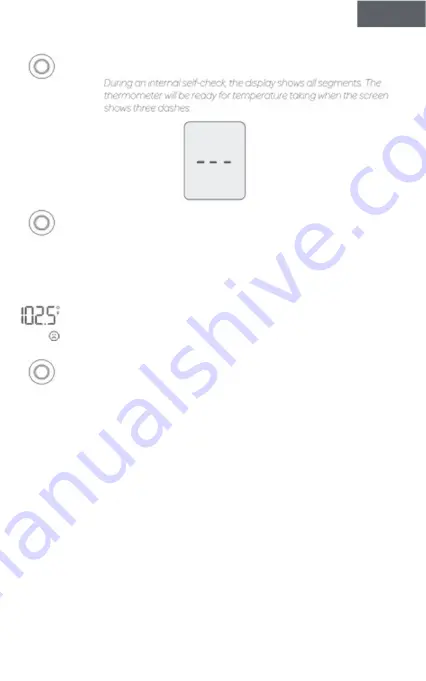
ENGLISH
Taking
a
Temperature
1.
2.
3.
4.
5.
Tap
the
Power/Start
button
A
to
turn
on
the
thermometer.
You
will
hear
a
beep
when
the
thermometer
is
ready
to
take
a
temperature.
During
an
internal
self-check,
the
display
shows
all
segments.
The
thermometer
will
be
ready
for
temperature
taking
when
the
screen
shows
three
dashes.
First,
gently
tug
the
ear
straight
up
and
back.
Next,
fit
the
probe
snuggly
into
the
ear
canal.
Be
sure
to
position
the
probe
so
that
it
is
pointing
toward
the
center
of
the
head.
Once
in
position,
push
and
release
the
Power/Start
button.
A
beep
will
indicate
when
the
temperature
measurement
is
successfully
completed.
Temperature
readings
typically
take
1
second.
The
temperature
reading
will
be
shown
on
the
illuminated
display.
A
smiling
face
icon
indicates
that
the
temperature
is
normal
while
a
neutral
or
frowning
face
indicates
a
mild
or
high
fever,
respectively.
The
thermometer
will
automatically
turn
off
after
30
seconds
of
inactivity.
The
display
will
briefly
flash
OFF
and
it
will
go
blank.
You
can
also
hold
down
the
button
to
power
off.
NOTE:
Always
take
measurements
in
the
same
ear
since
temperature
readings
may
differ
from
the
right
and
left
ear.
7




